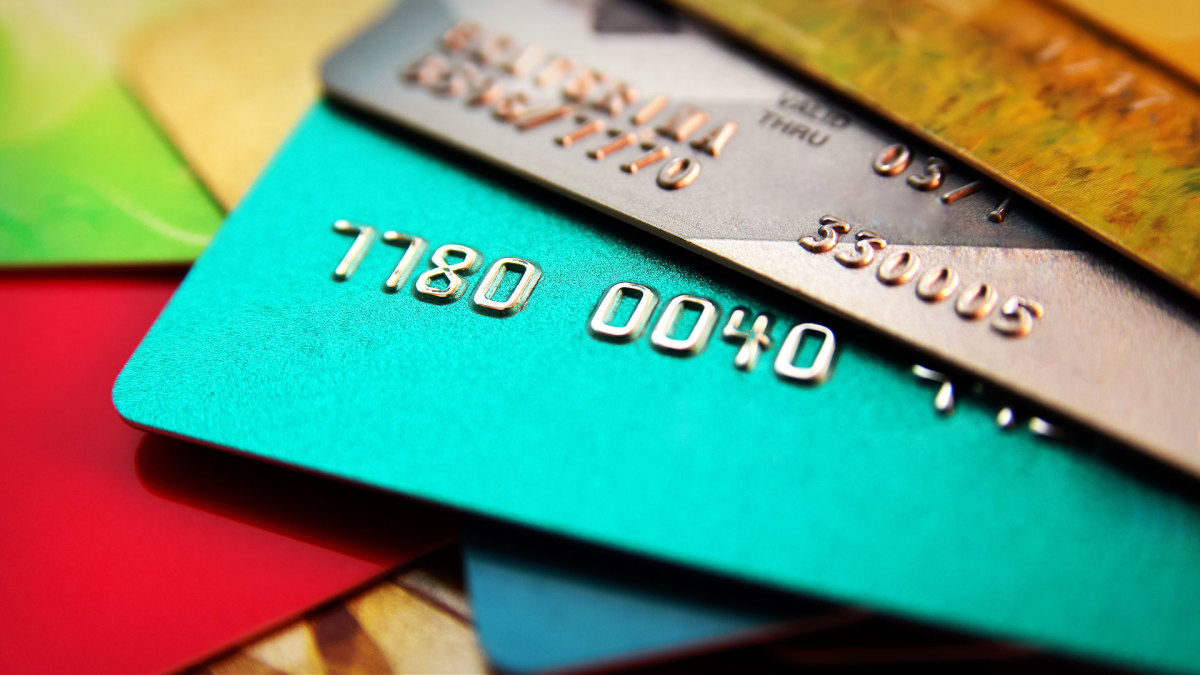
TheStreet aims to feature only the best products and services. If you buy something via one of our links, we may earn a commission.
Swiping, embedded chips, tap-and-go. Each new advance in card payments is designed to make it harder for swindlers to access your card information, but it’s a game of cat-and-mouse. Even with technological improvements, credit card fraud persists, with 210,112 cases reported to the Federal Trade Commission in the first half of 2024.
A 2024 survey by Security.org found that 60% of U.S. cardholders were victims of card fraud at least once, with 45% experiencing fraud multiple times. However, there are steps you can take to minimize your risks.
Don’t miss the move: SIGN UP for TheStreet’s FREE Daily newsletter
“Many people think they don't need to worry about credit card theft or scams because our banks often reimburse us for unauthorized transactions. But there are many reasons to try to avoid these scenarios,” says Maria-Kristina Hayden, CEO and founder of Outfoxm, a consulting firm focused on the human elements of cybersecurity.
DON'T MISS: Important credit card information you need to know
• What is a virtual credit card?
• Best credit cards for online shopping
• Should you opt out of prescreened credit card offers?
Hayden cites the potential impact on your credit score, the risks of further identity theft issues, and the hassle of resolving fraudulent charges with the credit card companies as just a few of the reasons it makes sense to have a credit card fraud prevention strategy in place.
Related: Wells Fargo may pull the plug on a popular credit card
What you can do to prevent credit card fraud
When a thief gains access to your credit card information and tries to use it, that’s credit card fraud. This can happen in a variety of ways, such as a widespread data breach, someone using your information to open a new account, contacting you via phone, text or email with a scam and asking you for your card information (also known as phishing), or cloning your card with a skimming device that goes undetected at a place where you might swipe your card like a gas station pump or ATM.
Credit card fraud prevention can help reduce the chances of these scenarios happening to you. Here’s what you can do:
- Freeze your credit. A credit freeze locks your credit file so no new accounts can be opened in your name. It’s free to add a credit freeze at each of the three main credit bureaus: Equifax, Experian, and TransUnion. However, if you need to apply for a new loan, you can remove the freeze or just request a temporary thaw by logging into your accounts.
- Sign up for fraud alerts. Most credit card issuers allow you to customize alerts on your account so you can get an email or text when certain card activity occurs. For example, you can set an alert if a purchase over a certain amount is made on your card or if your balance is too close to your limit. This can help you discover in real time if something is amiss with your account.
- Use strong passwords. Don’t use the same password across multiple sites; use ones that are hard to guess. If your card issuer doesn’t already use multi-factor authentication for your online card account, you may want to see if you can add this step for an extra layer of security.
- Review your statements regularly. Be sure to check all the charges on your card statement to ensure there aren’t any you don’t recognize. Some thieves may make a few smaller charges to see if they go undetected before making a larger one. Even a charge as small as a few dollars is worth investigating if you don’t recall making the purchase.
- Use virtual card numbers when shopping online. Most major issuers allow you to create a one-time card number for online purchases that hides your real account number. This can protect you from having your card information copied and used elsewhere.
- Use tap-to-pay where offered. Tapping your card at a payment terminal instead of inserting your card eliminates the risk of your card being cloned by a hidden device at a payment terminal.
- Be skeptical. If you’re contacted by someone who says they’re with your bank and need you to provide identifying information, like your card number, PIN or a password for your account, that should be a big red flag. Similarly, fraudulent emails are designed to look just like ones from your issuer. It takes just a second to click on the “From” section at the top of your email and see if the sender’s email is from your bank. If there is an issue with your card account, call the number on the back of your card. That way, you can be sure you’re speaking to someone at your bank.

Getty Images
What to do if you’re a victim of credit card fraud
If your card was lost, stolen, or you’ve been notified of unusual card activity, call your credit card company and ask them to freeze the account immediately. The next step is to cancel the card and get a replacement card with a new account number.
DON'T MISS: More from The Street on credit cards
- Chase revokes a major privilege customers love in ‘calculated’ move
- How much credit card debt does Americans have on average
- Dave Ramsey shares important advice about your credit card
If a thief did charge something to your card, thanks to the Fair Credit Billing Act (FCBA), your liability against unauthorized charges on your credit card is limited to $50. This means whether your card was fraudulently used to buy $100 worth of stuff or $10,000, your responsibility is just $50. However, most credit card issuers go one step further and offer a zero liability policy, meaning you won’t have to pay anything out of pocket for unauthorized use of your account.
If you have an incorrect charge on your account, per the FCBA, you can initiate a billing error dispute with your credit card issuer. This involves sending a dispute letter and supporting information to the issuer within 60 days of receiving the bill. By law, within 30 days of receiving your complaint, the issuer must acknowledge receipt, and within 90 days of receiving it, they must come to a resolution.
Related: Veteran fund manager sees world of pain coming for stocks







